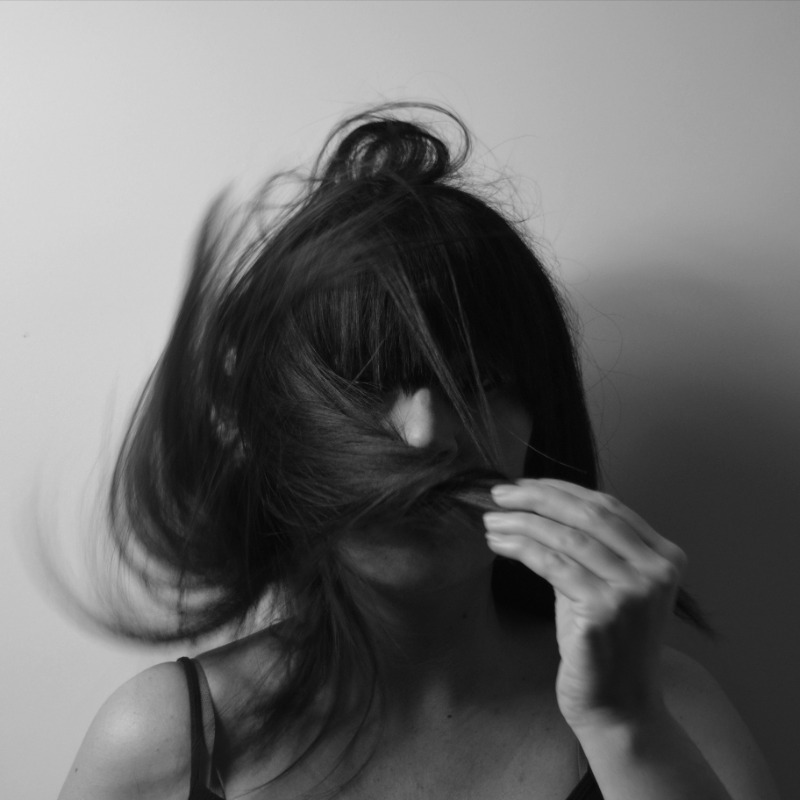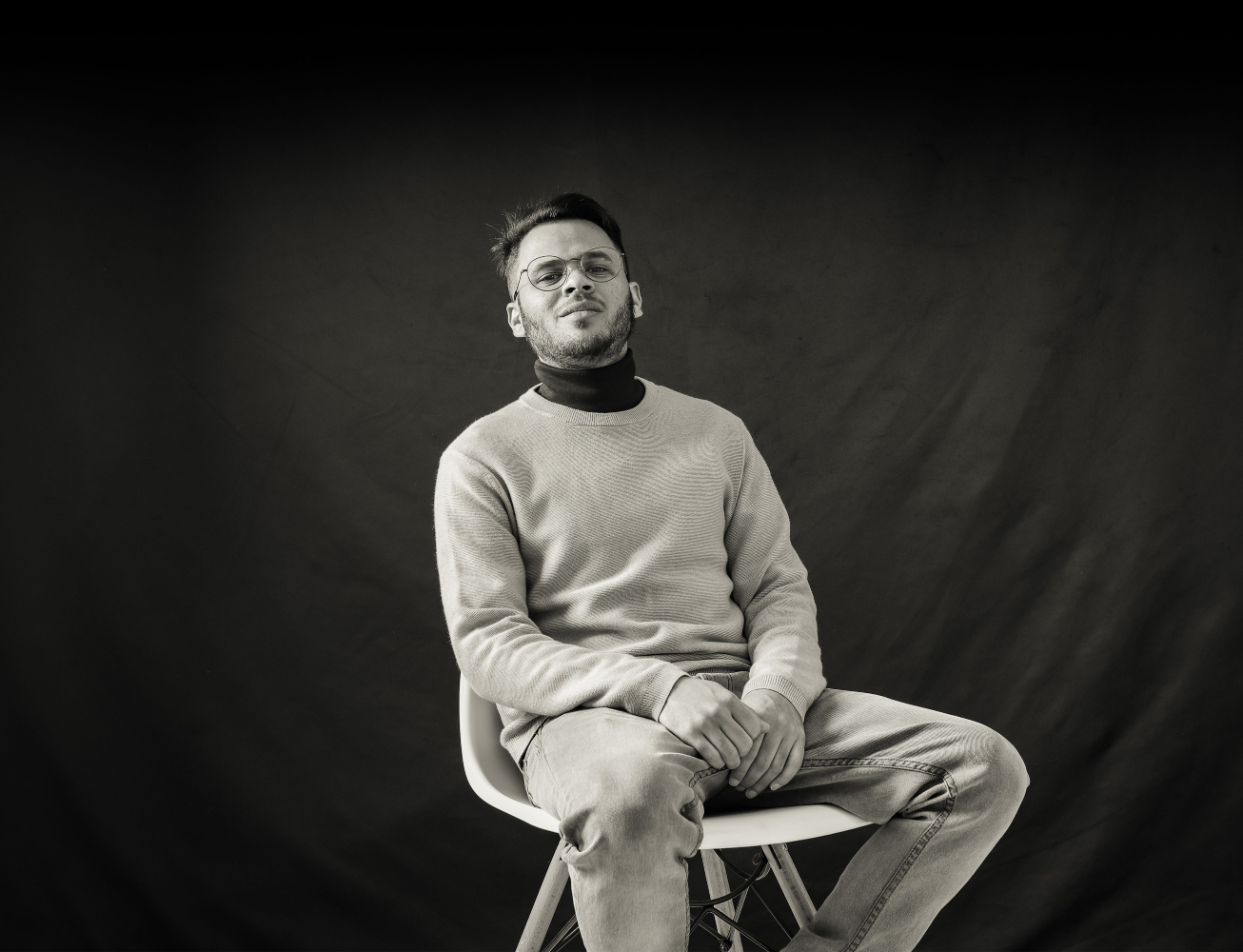Q+A: Five minutes with Melawati
Though he may come from a background in indie rock, Martijn Ravesloot, AKA Melawati, has always found beauty in machines. Citing the likes of Aphex Twin and Amon Tobin as key influences, it was a matter of time before Ravesloot embraced his electronic instincts. Released last month on Maceo Plex’s Ellum Audio imprint, Melawati’s debut album Aritmia is an ode to these instincts; music forged from improvisations and experimentations on modified machines and modular synths. The result is an arresting, often gorgeous, body of work that seeks to find the beauty in chaos. Fresh off the release of Aritmia and a stellar live set at Tomorrowland, we caught up with the producer to learn more about his music and the origins of his sound.
Set the tone for us. Why music?
Honestly, it never felt like that was a choice I had to make. I grew up in a musical family, my father was a session pianist in the nineties, so all I did when I was a kid was hang out in studios, and go to his shows. As I got a bit older, and was messing around with my first bands and making some songs of my own, it was even a bit of a surprise that not everyone wanted to be in a band. It just seemed like the best way to spend every minute of your free time. As a teenager, all I did every summer was haul my drum kit to all the local festivals, play in different bands, and make bad EPs. It was the best of times, and I found my happy place to be in the studio, starting the day with an empty project and total silence, and ending it with a song. The act of creating is just very addictive.
Who are some of your major influences, and why?
It’s always going to be The Beatles. I grew up on Revolver and the White Album, and am still never going longer than a week or two before diving back and putting them back on. It might sound like the most obvious answer, but it’s a borderline obsession for me, and to not mention them as an influence, would be a bit weird. The amount of ideas, creativity and freedom they exude is just unbelievable. Aside from everything fab four, I do listen a lot to Amon Tobin, who is probably the best sound designer I’ve ever heard. There are sounds that are really messing with my head, in a good way and I have no idea how they’re made. I would absolutely love to be a fly on the wall in his studio, as at the moment, listening to some of his tracks, I’m just guessing it’s actual magic.
When you’re making music, what comes first? The sound, or the idea?
I try to clear my head and experiment with sounds, melodies and rhythm without the pressure or focus of a track. I just make sounds, mostly on modular synths, until something catches my ear. I’ll then zoom in on the sequence or melody I like, and expand on it just by jamming around or layering some other things on top. I’m always recording everything, so after an hour or two I’ll sit down and try to edit the jams into something a bit more coherent. If it’s any good, and I like the vibe, I’ll start to consider it a track at this point and work out some ideas. I’ll get out my notebook and write down some non musical stuff that’s floating around in my head and is latching onto the sound I’m hearing. Some lyrics maybe, or some themes and theories. A lot of nonsense, but in the nonsense, I’m trying to find the reason for the track to even exist. If I find it, it’s go time. If not, it’s going into the archive, to be used as a sound source in my modular, or to be chopped up and turned into a sampler instrument.
You’re about to release your debut album. Could you tell us a bit about the project and what inspired it?
A couple of years ago, I had pretty bad arrhythmia, and as a result my heart would just stop, quite unexpectedly, for a couple of seconds, and restart again. It’s very stressful to have that happen every twenty minutes, and I was really not feeling too great about it. It really does put you in a weird mood, if your heart shuts down, even just for a couple of beats. You become hyper aware of everything and over time, it really starts to get inside your head. I really needed something to distract myself and focus on the now, instead of constantly listening to my heartbeat. So I started playing music, and recording it. I really wanted to focus on very intuitive stuff, not planning anything out or wondering about tracks or songs, let alone albums. Just staying in the present, and feeling out the music as I was making it. I needed the bliss of not overthinking the moment and for the beat to keep going. I was pretty angry and stressed, and clearly needed an outlet. The jams were kind of raw, but for a long time, I couldn’t really listen to them, as they brought me back to that weird place. In the end, the health stuff passed, but right then, the corona pandemic hit, and there was a weird feeling of déjà vu. Again, there was lots of stress, lots of overthinking. But all of the sudden the music I had made before, no longer reminded me of the problems I was facing at the time, but the solution they offered getting through it. They made me feel better. Not knowing what was going to happen, and being okay with that, was something I had learned the hard way, but now knew how to do. I listened back to the recordings I did all those months ago, and heard something more. I had time, as the lockdown hit hard in Brussels, so I sat down and turned those jams into an album.
Download and stream Aritmia here
What was the experience of making your debut album like for you?
It has been a real ride. For me, it will forever be closely connected to the last two years, and the various lockdowns we had going on. Finishing it felt like emerging from my dark studio in my attic, and heading out into the world again. And now that it’s done, I’m out of lockdown and standing in the sun, with music and good vibes under my arm.
Biggest lesson learnt now that’s done?
That music is more transient than I had previously anticipated. So much of the music on Aritmia started out as throwaway ideas, and what is now my album had so many twists and turns to it, different ways of looking at it, until in time things just organically formed into this album. So the lesson is, that music, or at least my music, will always evolve. What is a terrible idea, might grow into something great, what is a melancholic demo now, might be an anthem later on. So judge wisely and don’t overthink it.
Could you tell us about your experience with Ellum Audio? How did you find yourself on the label?
I was halfway up a mountain in Kanazawa, Japan, staying in a small hostel when I got a message, very out of the blue, by Maceo Plex. He asked me if he could sign a jam I had put up on instagram. I wasn’t chasing the dream at all at the time, and I answered truthfully, but foolishly, that the jam wasn’t really a track, just me messing around. He has better ears than me, though and he just asked if I could turn it into a track and get it to him by next Friday. I did, and a couple of weeks later, I saw the biggest stages being lit up by Daliah and the remixes. That was my first taste of Ellum, and it has been smooth sailing since. They are just very supportive of the music I make, always reminding me not to worry about expectations or genres, but to just do what I do best. They’ll find a place for it. And they have. I’m very grateful.
Do you have a favourite track on the album, and why?
My favourite track at the moment would be Stellar. Making the album was a labour of love, but labour still. I spend a lot of time rethinking tracks, starting again, remixing, adding, cutting and so on. Except for Stellar. I honestly have no real recollection of how I made it and when. I know it must have been a late night session, and I can hear which synth I’ve used, as I have video of me playing the initial run, but the track just kind of emerged after that. So when I’m listening to it, it’s like listening to somebody else, which is a very nice experience.
When you sat down to produce Stellar, where did you imagine it being played?
Stellar is very much the track I would have liked to have on my headphones while on a night train somewhere far away. I’d have it on repeat, while sitting next to the train window, rain coming down hard, and the destination still hours away. It’s a track for those in between moments in time, when the world seems unreal and everything freezes for a while.
Listen to I Just Want To Go Walking from Aritmia below.
Follow Melawati



